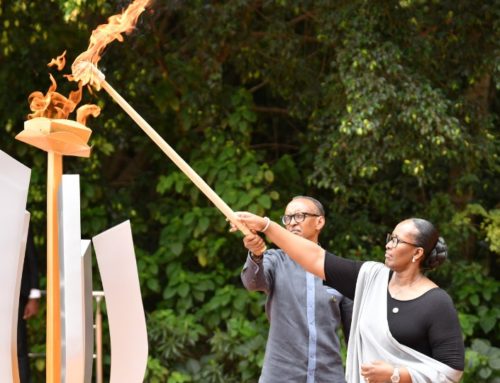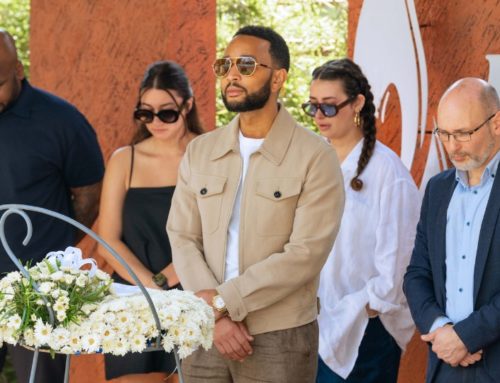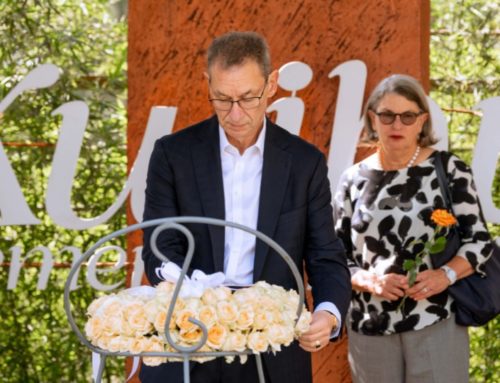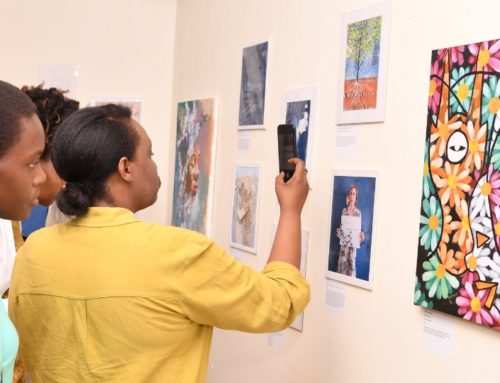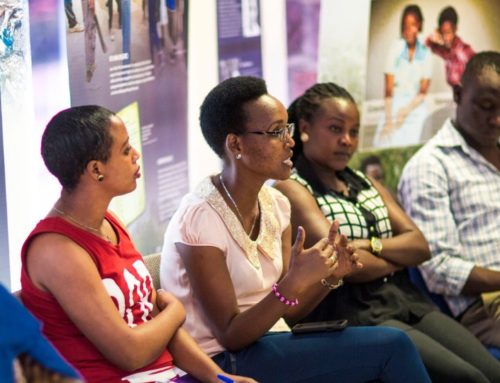11 Apr 2008 – Shortly before 8.00pm local time on Thursday 10 April 2008, an unknown assailant threw a grenade into the gatehouse of the Kigali Memorial Centre, Rwanda’s main site of remembrance for the victims of the 1994 genocide. 7-13 April is a week of mourning marking the 14th Annivesary of the start of the genocide.
The blast fatally injured Ignance Munyantamate, one of two policemen on duty in the gatehouse, who was pronounced dead on arrival at King Faisal Hospital. The other policeman, Jacque Ntimugura, was severely injured and remains in a critical condition at the hospital.
“Ignace was a courageous policeman who died in the line of duty keeping the memorial, staff and visitors secure. The Kigali Memorial Centre joins his family in mourning his loss,” said Dr James Smith, Chief Executive of the Aegis Trust, responsible for creating and running the Kigali Memorial Centre in conjunction with Kigali City Council. “This act of terrorism was intended to frighten people away from coming to the Kigali Memorial Centre, but has had the opposite effect.”
Security measures have been increased and staff were all at work as normal this morning. Over a thousand people streamed into the memorial today to the sound of music commemorating the genocide. Many have come to bury their relatives killed in the genocide, who are still being identified around the capital city. 107 victims of the genocide are being buried at the site today. The Kigali Memorial Centre is the final resting place of some 250,000 victims of the genocide that claimed nearly a million lives in 1994. Others have arrived at the memorial today in an act of solidarity.
“We are very much aware that this attack is part of a worldwide assault on memory and truth and that we are part of a fight against forces driven by genocidal ideology,” says Dr Smith. “The purpose of the Kigali Memorial Centre is not only to be a place of dignity for victims and survivors, but to be a place where young people learn from the past to prevent genocide. Students are at the Centre today to develop a programme about how such acts will not cause division in Rwanda. The attack reinforces why this is necessary and makes us resolute to fulfil Aegis’ mission.”
The Rwandan genocide began following the shooting down of President Habyarimana’s plane over Kigali on 6 April, 1994. Over the next hundred days, moderate Hutus and as many as a million Tutsis were murdered by Hutu Power militia and forces of the Hutu-dominated Government.
The museum at the Kigali Memorial Centre is modelled on the UK ‘s Holocaust Centre which is home to the Aegis Trust, the leading genocide prevention organisation. A traditional Rwandan genocide commemoration is due to be attended by survivors at the Holocaust Centre on Saturday 12 April.
Praise from UN Secretary General
World leaders who have visited the Kigali Memorial Centre this year include US President George W Bush, former British Prime Minister Tony Blair and UN Secretary-General Ban Ki Moon who on 7 April commented on his visit to the Kigali Memorial Centre earlier this year:
“The experience was as harrowing as my first visit to Rwanda two years earlier, and being there as Secretary-General of the United Nations carried even more profound meaning for me. It was impossible to pass through those halls and not be affected — indeed, shaken to the core — by what the Rwandan people endured.
“On this 14th anniversary of the genocide, my thoughts again go out the victims […] May they rest in peace. My thoughts go to the survivors. May their courage and resilience serve as an inspiration to all of us.
“The United Nations has a moral duty to act on the lessons of Rwanda. That is why this day is also a call to bolster efforts to prevent another genocide. It is a cause I am resolved to pursue, in my time as UN Secretary-General and in the years beyond. I have created the full-time position of Special Adviser for the Prevention of Genocide, and appointed a Special Adviser with a focus on the responsibility to protect — the obligation accepted by all States to act collectively, through the Security Council, when a population is threatened with genocide, ethnic cleansing, or crimes against humanity. I will spare no effort in working with Member States to translate this principle from word to deed. […]
“In all these endeavours, each one of us has a role to play: Governments, the media, civil society, and individuals. May the searing memory of the genocide in Rwanda always spur us on in our mission.”

